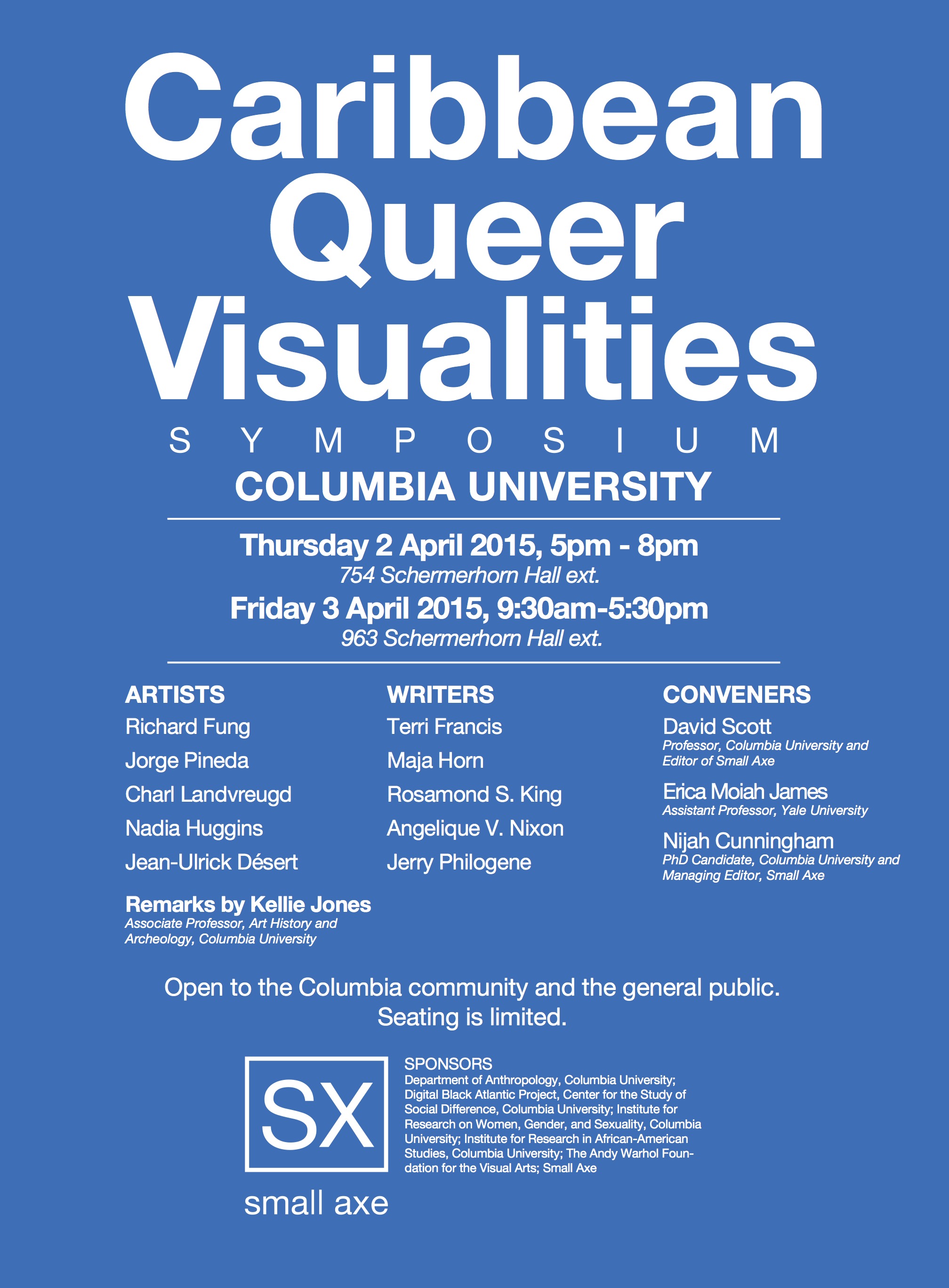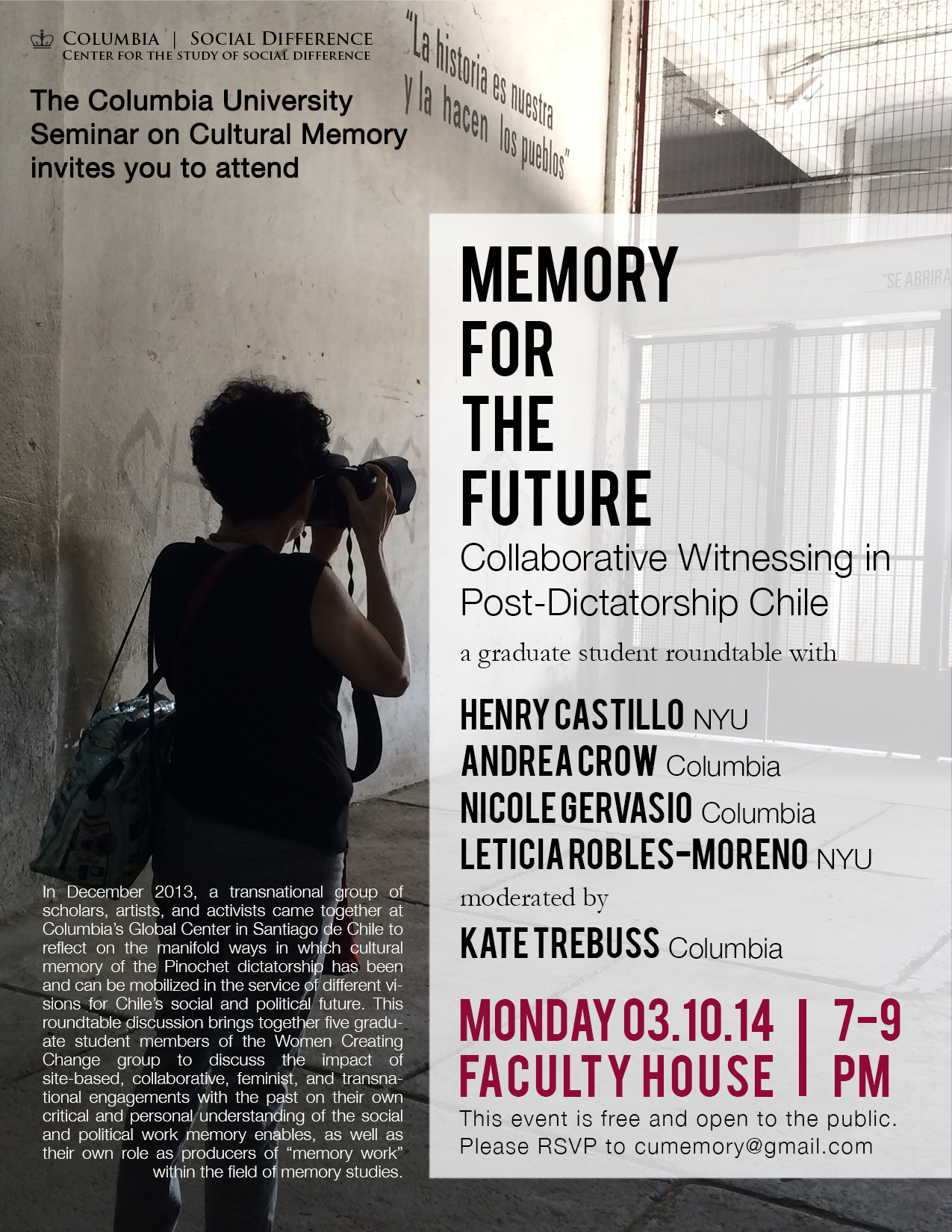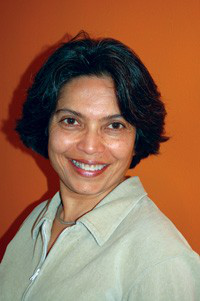2016-2017
On June 19, 2017, CSSD’s working group on Bandung Humanisms is presenting an international workshop entitled Bandung Humanisms: Towards a New Understanding of the Global South at Nanyang Technological University (NTU) in Singapore.
The World After the Russian Revolution
Harry Harootunian, New York University
Wang Hui, Tsinghua University, Beijing
Susan Buck-Morris, Graduate Center, CUNY
Friday, April 21
Institute for Public Knowledge
New York University
20 Cooper Square, Room 222
New York, NY
Narratives of Debt is a one-day conference presented by CSSD's working group on Unpayable Debt and the Oikos working group at NYU’s Institute for Public Knowledge. The conference focuses on the ways that people and groups h
Senior Research Scholar, Center for Biomedical Ethics, Stanford University
"Will Precision Medicine Be for 'All of Us'? The 'Good Citizen' in an Age of Disparity"
Precision medicine research relies on the massive collection of biospecimens, electronic health records, and other sources of behavioral and environmental data.
Thursday, March 30th, 2017, 4:10 - 6 p.m.
Butler Library 523
Bikem Ekberzade, Photojournalist, Turkey, "The Refugee Project: Anatomizing Gendered Violence"
The Center for the Study of Social Difference and the Women, Gender, and Sexuality Studies Council
Jackie Leach Scully, Professor of Social Ethics and Bioethics, and Executive Director, Policy, Ethics and Life Sciences Research Centre, Newcastle University, UK will ask how are the enormous recent advances in genomic knowledge and capabilities changing the meaning of the relationship between material embodiment and our sense of self? What does that mean for our understanding of embodiment that is disabled?
Friday, February 10, 4:10 - 6 p.m.
612 Schermerhorn Hall
“Rape Trees, State Security and the Politics of Sexual Violence along Migrant Routes in Mexico”
Wendy Vogt, Professor of Anthropology, Indiana University-Purdue University Indianapolis
“Suppliants and Deviants: Gendering the Refugee/Migrant Debate on the EU Border”
Chloe Howe Haralambous, Graduate Student, Engl
Jacqueline J L Chin, Associate Professor, Centre for Biomedical Ethics, Yong Loo Lin School of Medicine, National University of Singapore presents a discussion on February 9, 2017 about "Precision Medicine, Privacy, and Family Relations."
The talk, sponsored by CSSD's project on Precision Medicine: Ethics, P
Premilla Nadasen, Associate Professor of History at Barnard College and co-director of CSSD’s working group on Social Justice After the Welfare State, will participate in a Dissentmagazine issue launch focused on the challenges feminists will face under a Trump presidency on
Ruha Benjamin, Assistant Professor of Sociology and African American Studies, Princeton University presents a discussion on November 10th called "Can the Subaltern Genome Code?
Thursday, November 3, 2016, 4:15 p.m.
203 Butler Library
“Child Marriage in the Feminist Imagination”
Dina Siddiqi, Professor of Anthropology at BRAC University, Dhaka
“Race, Religion, and Masculinity: Europe’s Obsessions”
Rebecca Karl, Associate Professor, History, NYU
Jamie Monson, Director, African Studies, Michigan State University
Stephanie Rupp, Asssitant Professor, Anthropology, CUNY-Lehman
Barry Sautman, Professor, Division of Social Sciences, Hong Kong University of Science & Technology
Hairong Yan, Anthropologist, Department of Applied Social Sciences, Hong Kong Polytechnic University
Duncan Yoon, Assistant Professor, English, University of Alabama
CSSD's Precision Medicine working group presents Aditya Bharadwaj, Research Professor, The Graduate Institute, Geneva, on "Cultivated Cures: Ethnographic Encounters with Contentious Stem Cell Regenerations in India" on October 13th, 2016 from 5-7 p.m. at 754 Schermerhorn Extension.
The lecture seeks to conceptualize how we might understand a scene of chronic and progressively pathological affliction as a site for witnessing the anatomy of a cultured and cultivated cure from within the emergent field of regenerative medicine.
October 13, 4:15 p.m., 203 Butler Library
"Feminist Politics, War Rapes, and Global Governance"
Dubravka Zarkov, Associate Professor of Gender, Conflict and Development at the International Institute of Social Studies, The Hague
CSSD’s Precision Medicine working group presents James Tabery, Adjunct Associate Professor, Pediatriacs, Internal Medicine, and Philosophy, University of Utah, on "Collins' Cohort: The Path from The Human Genome Project to the Precision Medicine Initiative" on September 15th, 2016 from 5-7 p.m.
2015-2016
The Center for the Study of Social Difference and the Women, Gender, and Sexuality Studies Council are co-hosting a spring 2016 Keywords Roundtable Discussion on t
A symposium to celebrate the 25th anniversary of the Americans with Disabilities Act, The Future of Disability Studies project, and the publication of Keywords for Disability Studies.
"Collaborative Archives: Connective Histories," part of the CSSD working group Women Mobilizing Memory's Collaboration and Co-Resistance project, runs at Neiman Gallery until September 18th, 2015.
The exhibition was curated by Katherine Cohn and Isin Onol and is the manifestation of multi-year collaboration of a transnational group of artists, scholars and activists from the U.S., Chile and Turkey who study the politics of memory from the unique perspective of gender and social difference.
The gallery is open Monday through Friday, 9 a.m. - 5 p.m. View the exhibit page here.
In the context of its fourth international working group meeting, Women Mobilizing Memory presents an art exhibition
"Women Mobilizing Memory," a three-year working group of Columbia’s Center for the Study of Social Difference, explores the politics of memory in the aftermath of the atrocities of the twentieth and twenty-first centuries in comparative global perspective with unique attention to the effects of social difference. Focusing on the shaping role of gender in the structures of political violence, the working group analyzes the strategies by which women artists, scholars and activists have succeeded in mobilizing the memory of gender-based violence to promote redress, social justice, and a democratic future. Looking at gendered memory politics in several sites around the world, the group has analyzed these in a broader connective context. From the fortieth anniversary of the Chilean coup, the 100th anniversary of the Armenian genocide, and cycles of violence against indigenous and minority peoples in Chile, Turkey and the United States, it has featured activist and future-oriented modes of representation and commemoration. At the same time, it probes the limits of comparative and connective approaches to memory politics. Based in the Humanities and the Arts, the group looks closely at the political efficacy of various media of memory, ranging from visual art, literature, journalism and performance to museums, memorials, and street actions. What role do these various media play in combatting the erasure of past violence from current memory and in creating new visions and new histories for future generations? The collaborations among the participants in the working group, their face-to-face as well as virtual meetings and their constructive conversations and disagreements, aim to create a space of solidarity and co-resistance that can lay the groundwork for a more hopeful future.
2014-2015
In early 2015 Shoshana Magnet, associate professor at the Institute of Feminist and Gender Studies at the University of Ottawa, came to speak to CSSD’s working group on Science and Social Difference about her feminist analysis of recent scientific inquiry into mixed societies of robots and insects.
Magnet, co
Keywords event on "trans," featuring Jack Halberstam, Professor of American Studies and Ethnicity, Gender Studies and Comparative Literature, University of Southern California; Yvette Christiansë, Professor of English and Africana Studies, Barnard College; Jack Pula, Instructor of Psychiatry, College of Physicians & Surgeons, Columbia University and Chairperson of the Transgender Committee, Association of Gay and Lesbian Psychiatrists; and Yasmine Ergas, Co-Chair of Women's, Gender & Sexuality Studies Council, Director of Gender & Public Policy Specialization, and Lecturer in Discipline of International and Public Affairs, SIPA. Moderated by Jean Howard, George Delacorte Professor in the Humanities and Chair, Department of English and Comparative Literature, Columbia University.
Pulitzer Prize-winning journalist and author Ron Suskind spoke at Columbia in March about pursuing a demanding career in investigative journalism while raising his autistic son Owen.
Caribbean Queer Visualities, co-sponsored by the CCSD working group the Digital Black Atlantic Project, reflects on and stimulates the production of creative and critical work that takes seriously the emergence of heterodox personal and public identities, identities that breach or subvert or evade the heteronormativities of colonial and postcolonial modes of being and self-expression.
Over the course of this afternoon of multiform panel presentations, we will engage critically with the digital as praxis, reflecting on the challenges and opportunities presented by the media technologies that evermore intensely reconfigure the social, historical, and geo-political contours of the Caribbean and its diasporas. Presenters will consider the affordances and limitations of the digital with respect to their particular methodologies – notably, representing the past, historicizing space, and telling stories.
REGISTRATION REQUIRED; BY INVITATION ONLY
Social Justice after the Welfare State, a workshop led by Alice Kessler-Harris and Premilla Nadasen in the Center for the Study of Social Difference (CSSD) at Columbia, hosts a daylong symposium to explore the transformation of the welfare state and social movements in the face of neoliberal challenges. We consider the implications of this transformation for the political economy of class, gender, racism, and migration.
The Caribbean Digital is a unique two-day conference presented by the Center for Social Difference's Digital Black Atlantic Project (DBAP).
Over the course of the twentieth century in the United States and Europe, the social bargaining process we call welfare integrated capital and labor in ways that had a profound impact on political participation and legitimacy. Examining social policy and citizenship in a comparative framework, Christian Lammert, professor for North American Politics at the John F. Kennedy Institute of the Free University of Berlin, will speak to the relationship between welfare and democracy—a question central to contemporary transatlantic debates surrounding capitalism, austerity, and inequality.
"Coming to Terms" with Gendered Memories of Genocide
2013-2014
Please join us for "Beyond masculinity: testosterone, sexual desire, and gender/sex," lecture by Sari van Anders, University of Michigan.
Keywords event on "Vulnerability" featuring Walter Bockting, Professor of Medical Psychology (in Psychiatry and Nursing) and Co-Director, LGBT Health Initiative, Division of Gender, Sexuality, and Health, Department of Psychiatry; Katherine Ewing, Professor of Religion and Director, Center for the Study of Religion and Sexuality; Marianne Hirsch, William Peterfield Trent Professor of English and Comparative Literature and Women’s and Gender Studies and Director, Center for the Study of Social Difference; and Richard Parker, Professor of Sociomedical Sciences and Anthropology, and Director, Center for the Study of Culture, Politics, and Health; with Alondra Nelson, Professor of Sociology and Women’s and Gender Studies, Director, Institute for Research on Women, Gender, and Sexuality, and Co-Chair, Women's Gender, and Sexuality Studies Council, moderating.
A graduate student roundtable discussion with Henry Castillo (NYU), Andrea Crow (Columbia), Nicole Gervasio (Columbia), and Leticia Robles (NYC) and moderated by Kate Trebuss (Columbia)
As part of the Heyman Center for the Humanities Disciplines Series:
Evaluation, Value, and Evidence, authors Alison Piepmeier, George Estreich, and Rachel Adams take up many of the questions raised in the November 2013 event on "Genes, Children, and Ethics" (featuring Michael Berube, Faye Ginsberg, and Rayna Rapp) in their discussion of "Parenting, Narrative, and Our Genetic Futures." Jordana Mendelson will chair.
Cosponsored by the Future of Disability Studies project.
Please join the Institute for Research on Women and Gender and The Center for American Studies as we celebrate the recent publishing successes of our Project Directors and affiliated faculty:
2012-2013
Deborah A. Thomas, Professor of Anthropology at the University of Pennsylvania, will be speaking on "Exceptional Violence: Embodied Citizenship in Transnational Jamaica." She is the author of Modern Blackness: Nationalism, Globalization, and the Politics of Culture in Jamaica and a co-editor of Globalization and Race: Transformations in the Cultural Production of Blackness, both also published by Duke University Press.
2011-2012
Evan is a young man with Down Syndrome who lives with his mother in a poor, working-class town hit hard by the recent economic recession. When he unexpectedly comes into a large amount of money, Evan uses it to romantically pursue Candy, a girl from town whom he has loved since high school. Candy, now a barely-employed single mom, is facing financial debt, possible eviction, and the inability to rid herself of Russ, her abusive and volatile ex-boyfriend.
Put your back into it. Show some spine.
Publications Party in celebration of the publication of Marianne Hirsch and Nancy K. Miller's Rights of Return and Alondra Nelson's Body & Soul and the launch of our NEW journal SocialDifference-Online.
A talk by Tobin Siebers (Department of English, University of Michigan) with a response by Elizabeth Leake (Department of Italian, Columbia University)
This panel will explore the the conflicts and common ground between two fields that have often been in tension with one another. Speakers will be asked to share their insights into this tension, identifying spaces of possibility where the two might intersect/collaborate/learn from one another.
What are the effects of catastrophe on cities, their inhabitants, and the larger world? How can we address the politics of terror with which states react to their vulnerability? In a series of presentations and conversations, an international group of artists, writers, activists and individuals directly affected by urban inquiry will imagine creative modes of reinvention in response to urban disasters.
We begin our project with a panel of students, faculty, and staff who discuss the ways the university has both accommodated and excluded people with disabilities. What are some of the surprising and innovative ways that Columbia has sought to include people with disabilities in its community? Conversely, how has it managed to maintain ADA compliance, while creating an unwelcoming environment for people with disabilities? Our campus will serve as a starting place for a broader discussion about disability, access, and higher education.
2008-2009
A conference and roundtable discussion on the connections between international borders and social boundaries in the contemporary world with a keynote address by Nina Bernstein of the New York Times on “Outlaw Generation: A Crackdown and its Consequences for Children in Illegal Immigrant Families in the United States”
Free and open to the public
Clive van den Berg has designed and curated many of South Africa's most significant heritage installations: the Women's Gaol & Prison #4 at Constitution Hill, the Worker's Museum, the Kimberley Legislature, and Freedom Park. His studio art practice has similarly explored issues of memory and memorialization in the face of silence and forgetfulness. In this lecture, he presents his own work, and meditates on the possibility of giving form to what escapes the order and the authority of the page in a nation whose diverse histories have rarely been given voice.
This paper examines the affective circuits that animate images of disturbing events, looking in particular at the politics of pity and compassion. Focussing mainly on an image of famine in the Sudan, incorporated into a video installation by Alfredo Jaar, it analyses the complex of positive and negative affects aroused by the documentary image, and the way in which these are exposed and
From Gogol's short story of a body divided against itself, and the archive of Stalin's purges, comes William Kentridge's magical restaging of Shostakovich's opera, 'The Nose.' Kentridge, one of the world's foremost artists, is joined by opera scholar and dramaturgue David Levin to discuss his visual investigation of anarchism and anomie, power and its excesses.
Tina Campt
CCASD Visiting Fellow and Associate Professor of History and Women's Studies (Duke)
on
"Family Touches: Black Germans and the Sight and Sense of Race"
Renée Green, artist, filmmaker, writer and Dean of Graduate programs at San Francisco Art Institute, visited Columbia on 2/26 for a screening of her film "Endless Dreams and Water Between" at 4:30pm in 612 Schermerhorn. A short reception was held at the conclusion of the film, from 5:30-6pm. Green delivered a public lecture, followed by a conversation with Eduardo Cadava (Princeton University).
Seminar Discussion with Ayse Parla on "The Inclusive Exclusion of Turkish Immigrants from Bulgaria"
A one-day conference that brought together scholars, artists and cultural institutions to explore the practical and conceptual challenges posed by 'live' practices and embodied repertoires to conventional understandings of the archive and archival practice. Invited participants included George Lewis, Tavia Nyong’o, Jean Howard, Elin Diamond, Diamela Eltit, Anna Deveare Smith, Lois Weaver (Split Britches), Reverend Billy, Ozzie Rodriguez (La MaMa E.T.C.), Mary Marshall Clark, Marvin Taylor
Who's Afraid of Shari'a?: A Conversation about “War, Law and Humanitarian Intervention"October 2, 2008
Who's Afraid of Shari'a?: A Conversation about "War, Law and Humanitarian Intervention" with Naz Modirzadeh (Program on Humanitarian Policy and Conflict Research, Harvard School of Public Health) and Mahmood Mamdani (Columbia University). Moderated by Katherine Franke (Columbia Law School). Thursday, October 2nd, 4:10-6pm, 754 Schermerhorn Extension. Reception to follow.
Image: Humanitarian intervention in Afghanistan as spectacle. Carnivale in Rio de Janeiros, BBC News in Pictures 2007.


























